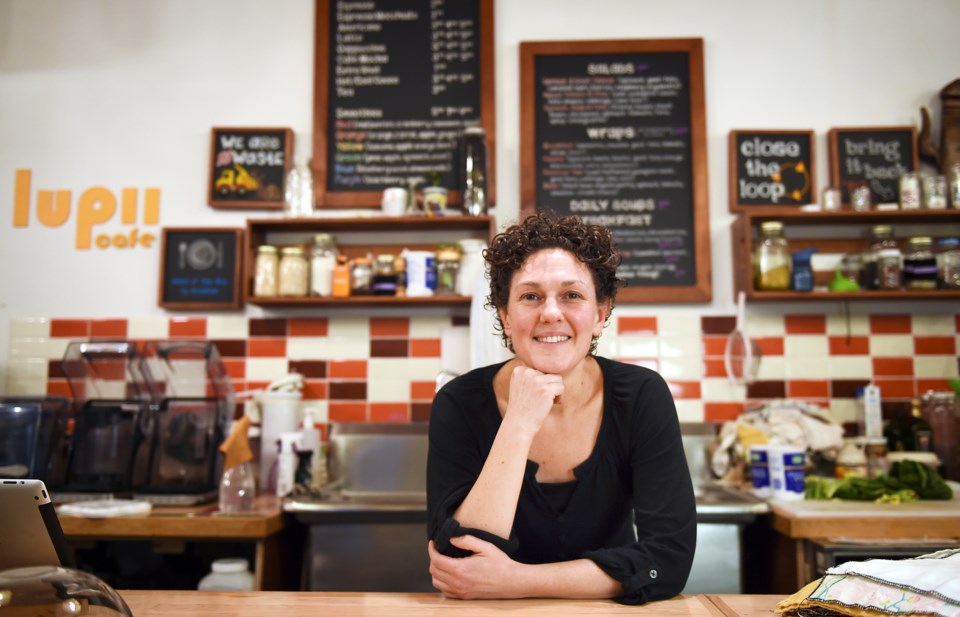Tucked away in the heart of Champlain Heights is a unique and innovative restaurant, the Lupii Café. Owner Lisa Papania is an SFU professor in the Beedie School of Business who opened the café last summer to apply her and her students’ research in waste and sustainability. She chose the name Lupii from the concept of a “closed loop,” in which things get recycled and reused.
“I have been working with students in my own research projects over the last 10 years to find out how much waste there is, why there is so much waste and what happens to it,” Papania said. “My students have always been focused on finding solutions to waste. I wanted to be able to tell my students that it is possible to be able to prevent waste, to be socially responsible and engaged, but I wasn’t able to give many local examples.”
Papania, along with her husband and several other employees, including one co-op student, manage the operations of the café, which is open from 8 a.m. to 8 p.m. seven days a week. The café’s zero waste policy means that the food is vegetarian, consisting mostly of wraps, soups and salads, and 90 per cent of the restaurant’s green waste is either recycled or composted.
“Having a vegetarian menu made sure that it went to pigs, chicken and goats,” she said. “We take our edible food waste down to Urban Digs, a farm in Burnaby. We go down at least once a week. The other stuff that is green waste, coffee grounds, tea bags are compostable but not edible. We have a relationship with Recycling Alternative, a Vancouver recycling company for local businesses, which has a transparent process as they allow us to look at the composting process in their Delta centre.”
Unlike other restaurants, almost every item, from the utensils to the interior has been upcycled. She notes that the take-out containers are mason jars and the napkins are made from reusable upcycled cloth napkins. She also points out that the tops of the wooden coffee tables at the front are from an old gymnasium floor on Commercial Drive and the casing on the water heater is from a 100-year-old mansion on the West Side that was demolished.
In order to follow through on her establishment’s zero waste policy, she works with local companies and businesses to ensure that all drink and food containers are properly composted.
“One of the mandates of my mission is to work with suppliers to get to understand the Environmental Management Act, which says that it is the responsibility of the producers to provide opportunities and options for customers to bring back waste or put into place ways of packaging that they don’t need to go to the landfill.”
In opening her cafe, Papania not only wanted to provide an environmentally sustainable alternative for the neighbourhood, but also a place where people could make social connections through various events. Some of these events include a monthly community dinner, movie nights, kids drop-ins and support groups for new parents.
Papania says that her café is not yet 100 per cent zero waste, but that it is a work in progress.
“If I say that I am going to pursue zero waste, I need to able to have conservations with customers, about how we get better over time,” she said. “A conservation about compostable cups, can I guarantee that? Can I take on the responsibility of zero waste? I need to be able to persuade, educate, listen and be educated.”
@katrinatrask



